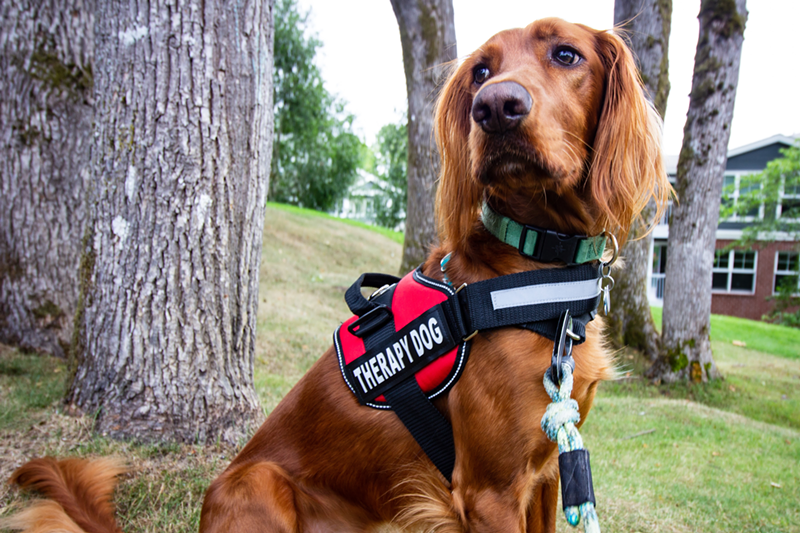Fact: we do not deserve dogs.
Some dogs can sniff out drugs and bombs. Others, like those service animals at Paradise Dog Training in Fenton, Michigan have been trained to successfully detect everything from bed bugs to changes in blood sugar levels in diabetics. And now, they're taking on COVID-19.
According to an MLive exclusive, Paradise Dog Training founders Lori and Jack Grigg have reported that two of their dogs have a 75%-85% success rate in detecting COVID-19.
“It’s a whole lot quicker way of getting tested and getting quicker results,” Lori said. “It’s just one more means to identify the COVID-19 virus that’s out there.”
The couple has been training two of their bed bug-sniffing dogs since the pandemic started. To detect the coronavirus, dogs are presented with 10-15 buckets. In each bucket, there's a cotton ball soaked with spit, some may or may not be infected with COVID-19. According to the trainers, the dog will sit by the bucket they believe to have the COVID cotton ball. The couple has been training the dogs daily.
The experiment is made possible thanks to donated COVID-soaked cotton balls, which they store in a freezer. But the trainers say they're struggling to get their hands on additional samples. Lori Grigg told MLive that because the trial is new and not “recognized by the Michigan government,” people are skeptical of getting involved.
However, similar studies are currently underway, like the one being piloted at the School of Veterinary Medicine at the University of Pennsylvania, where nine scent detection dogs are faced with COVID-19 samples and non-infected samples. According to a spokesperson for the school, phase 1 of the program has found that dogs have a 95% accuracy rate in determining which urine samples are from hospitalized COVID-19-positive patients while successfully ignoring those samples that are negative.
The next phase will focus on saliva detection and phase 3 of the study will have dogs sniffing out cotton T-shirts to see if they can pick up on odors of asymptomatic individuals, or those who have had minor symptoms.






